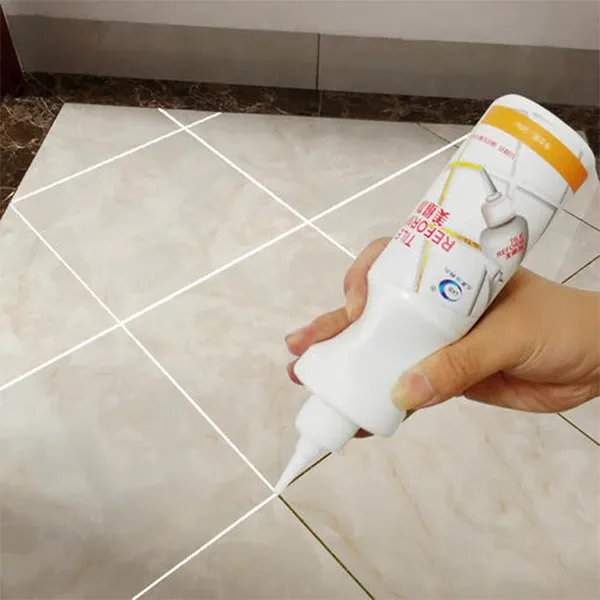Hydroxyethyl Cellulose (HEC) A Versatile and Essential Polymer
Hydroxyethyl cellulose (HEC) is a non-ionic, water-soluble polymer derived from cellulose, a natural polymer found in the cell walls of plants. By chemically modifying cellulose through ethylene oxide reactions, HEC is produced, enhancing its functionality in various applications. This biodegradable polymer has garnered considerable attention due to its unique properties, making it indispensable in numerous industries, including pharmaceuticals, cosmetics, construction, and food.
Properties of Hydroxyethyl Cellulose
HEC possesses several attributes that contribute to its widespread use. Firstly, it is highly soluble in water, forming clear, viscous solutions that can be easily manipulated. This solubility is particularly useful in formulations requiring rapid dispersion and dissolution. Additionally, HEC boasts excellent thickening, film-forming, and stabilizing properties, enabling it to modify the rheology of liquids effectively. These characteristics lead to enhanced consistency and texture, crucial for product performance and user experience.
Moreover, HEC is non-toxic and non-irritating, making it suitable for use in personal care products and pharmaceuticals. Its biocompatibility allows it to be incorporated into formulations for sensitive applications, such as eye drops, creams, and gels. Furthermore, HEC's thermal stability and resistance to microbial growth enhance its functionality in various conditions.
Applications of Hydroxyethyl Cellulose
1. Pharmaceuticals In the pharmaceutical industry, HEC is widely used as a binder in tablet formulations, a suspending agent in liquid formulations, and a stabilizer in emulsions. Its ability to create viscosity helps in controlling the release of active ingredients, improving the efficacy of medications. HEC is also incorporated into topical formulations, providing an optimal texture and helping to maintain moisture levels in the skin.
hydroxyethyl cellulose hec

2. Cosmetics and Personal Care HEC is a popular ingredient in cosmetics, such as lotions, shampoos, and conditioners. It acts as a thickener and helps improve the spreadability of products. Additionally, HEC enhances the stability of emulsions, ensuring that cosmetic products retain their intended texture and effectiveness over time. Its film-forming capabilities contribute to product adherence and long-lasting effects on the skin and hair.
3. Construction In the construction industry, HEC is used as a crucial additive in cement-based materials, such as mortars, tile adhesives, and plasters. It enhances workability by improving the flow and consistency of the mixture while also preventing water loss during the curing process. This results in improved adhesion and durability of the finished product, making HEC a vital ingredient in modern construction practices.
4. Food Industry In the food sector, HEC is utilized as a food stabilizer and thickening agent in sauces, dressings, and dairy products. Its ability to improve texture and maintain the stability of emulsions allows for the production of high-quality food items. HEC is also compatible with various other food ingredients, making it a versatile choice for food manufacturers aiming to enhance product quality.
Environmental Considerations
As mentioned earlier, HEC is a biodegradable polymer, making it a favorable choice for environmentally-conscious consumers and manufacturers. With the growing emphasis on sustainability, HEC's natural origin and ability to break down in the environment position it as a responsible alternative to synthetic polymers that may pose environmental risks.
Conclusion
Hydroxyethyl cellulose (HEC) is more than just a thickening agent; it is a multifunctional polymer with diverse applications across various industries. Its exceptional properties, including water solubility, non-toxicity, and biodegradability, make it a valuable ingredient in pharmaceuticals, cosmetics, construction, and food. As innovation continues, HEC's role in creating high-performance, sustainable products will undoubtedly expand, underscoring its importance in modern applications. Whether it's enhancing the efficacy of medications, improving the texture of cosmetics, or ensuring the durability of construction materials, HEC stands out as a remarkable and versatile polymer in today's industrial landscape.
-
Rdp Powder: Key Considerations for Wholesalers in the Building Materials IndustryNewsJul.08,2025
-
Key Considerations for Wholesalers: Navigating the World of Hpmc - Based ProductsNewsJul.08,2025
-
Hpmc Detergent: Key Considerations for WholesalersNewsJul.08,2025
-
Key Considerations for Wholesalers: China Hpmc For Tile Adhesive, Coating Additives, Concrete Additives, and MoreNewsJul.08,2025
-
Crucial Considerations for Wholesalers: Navigating the World of Construction MaterialsNewsJul.08,2025
-
Key Considerations for Wholesalers Sourcing Additive For Cement, Additive For Concrete, Additive For Putty from Additive Manufacturer Shijiazhuang Gaocheng District Yongfeng Cellulose Co., Ltd.NewsJul.08,2025




